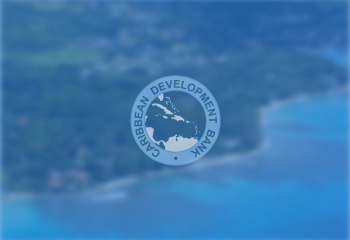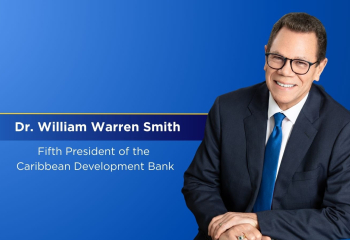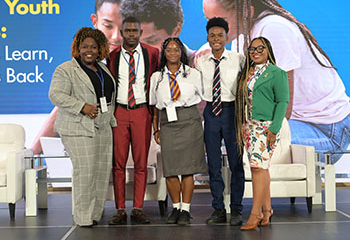July 22, is Deadline to Apply for Grant Funding for Disaster Risk Reduction Projects
The Caribbean Development Bank (CDB) is issuing a call to eligible organisations to apply for funding to support community based disaster risk reduction efforts and climate change adaptation projects. The selected projects will be financed from the Bank's Community Disaster Risk Reduction Fund (CDRRF) with a grant which may range from USD400,000 to USD650,000.
The deadline for submission of concept notes is 4:30 p.m. Eastern Caribbean time on July 22, 2014. Application documents and guidelines are available on the Bank's website at http://www.caribank.org/programmes/cdrr1.
CDB's Project Manager for the Community Disaster Risk Reduction Fund (CDRRF), Leslie Walling, notes that the CDRRF has been designed to provide direct and responsive support for interventions that address the specific local disaster risks, climate change circumstances and risk reduction needs of each target community.
"Although extreme natural hazard events such as hurricanes, storms, droughts and climate change effects such as sea-level rise may affect an entire country, in the final analysis, all disasters are local phenomena. This means that disaster risk reduction and climate change adaptation must, by definition, be a fundamentally local affair," Walling said.
The CDRRF was established by CDB with financing from Canada's Department for Foreign Affairs, Trade and Development (DFATD) and the United Kingdom's Department for International Development (DFID). Walling noted that the purpose of the Trust Fund is to finance community-driven, gender responsive and environmentally sustainable disaster risk reduction and climate change adaptation projects at the community level in 18 CDB Borrowing Member Countries (BMCs).
"The fund supports a proposal preparation process in which members of vulnerable communities are actively engaged in the identification and analysis of natural hazards that affect their communities, and in the design and implementation of projects to reduce the vulnerability to these hazards. In the process of implementing projects to reduce community vulnerabilities, communities enhance their ability to prevent, prepare for and cope with future disasters. In the CDRRF process people are at the centre of decision making and implementation.
"By providing vulnerable communities with direct access to grant opportunities, the CDRRF aims to permanently increase the level of community ownership, oversight, and involvement in disaster risk reduction and climate change adaptation activities across the Region. Direct access will also help to increase the speed of delivery of desired benefits, cut transaction costs and achieve better targeting of community-level priorities," Walling said.
Applicants must be based in, belong to, or partner with, the communities for which projects are being proposed. Eligible applicant organisations include Community Based Organisations (CBOs), Non-Governmental Organisations (NGOs), Faith Based Organisations (FBOs), Government Agencies and National Research Institutions based in eligible Caribbean countries.
BMCs which are eligible under the CDRRF are: Anguilla, Antigua and Barbuda, The Bahamas, Barbados, Belize, British Virgin Islands, Cayman Islands, Dominica, Grenada, Guyana, Jamaica, Montserrat, St. Kitts and Nevis, St. Lucia, St. Vincent and the Grenadines, Suriname, Trinidad and Tobago and the Turks and Caicos Islands.


